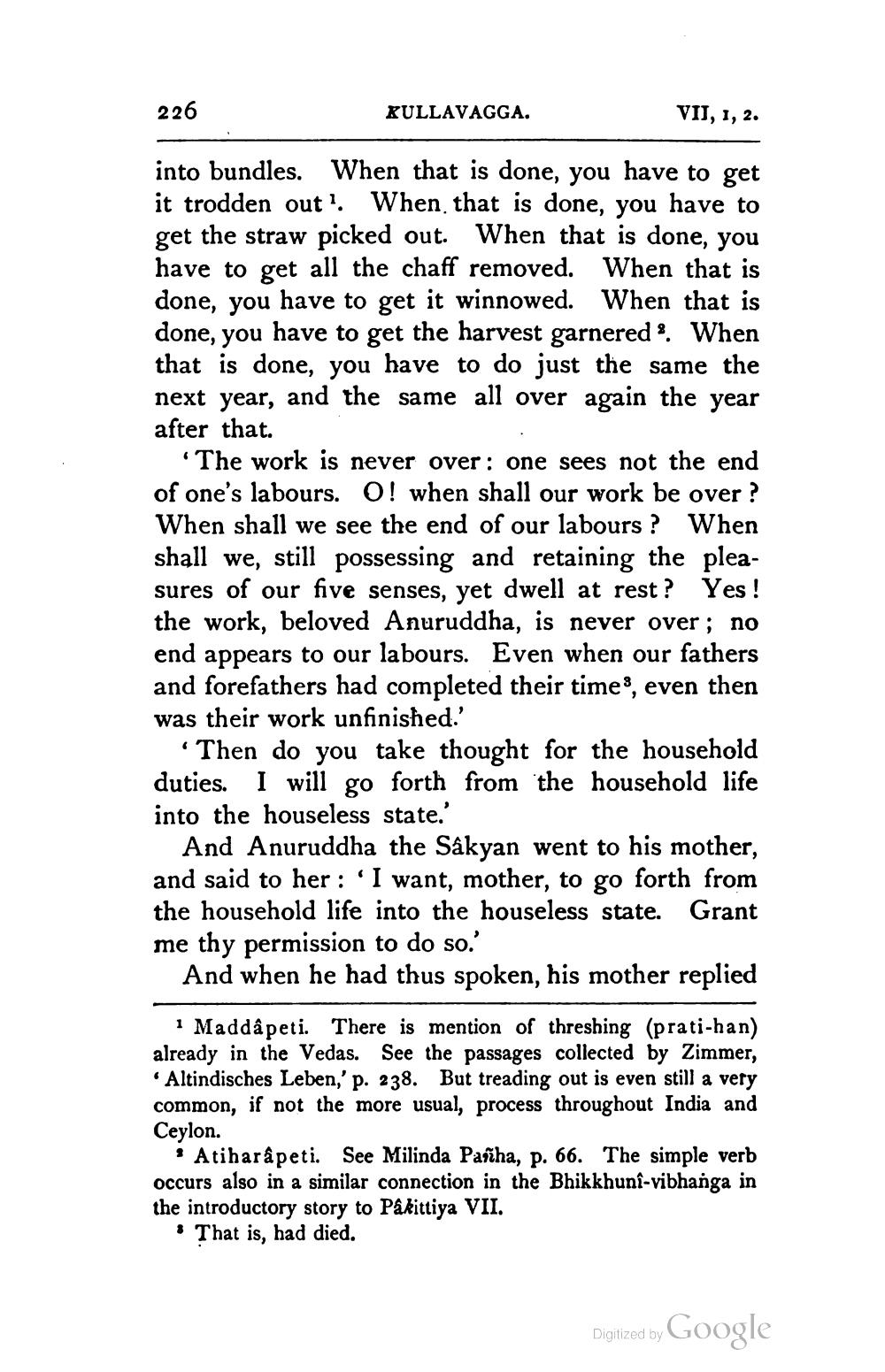________________
226
RULLAVAGGA.
VII, 1, 2.
into bundles. When that is done, you have to get it trodden out? When that is done, you have to get the straw picked out. When that is done, you have to get all the chaff removed. When that is done, you have to get it winnowed. When that is done, you have to get the harvest garnered . When that is done, you have to do just the same the next year, and the same all over again the year after that.
The work is never over : one sees not the end of one's labours. O! when shall our work be over ? When shall we see the end of our labours ? When shall we, still possessing and retaining the pleasures of our five senses, yet dwell at rest? Yes! the work, beloved Anuruddha, is never over ; no end appears to our labours. Even when our fathers and forefathers had completed their times, even then was their work unfinished.'
Then do you take thought for the household duties. I will go forth from the household life into the houseless state.'
And Anuruddha the Sâkyan went to his mother, and said to her: 'I want, mother, to go forth from the household life into the houseless state. Grant me thy permission to do so.'
And when he had thus spoken, his mother replied
i Maddapeti. There is mention of threshing (prati-han) already in the Vedas. See the passages collected by Zimmer,
Altindisches Leben,' p. 238. But treading out is even still a very common, if not the more usual, process throughout India and Ceylon.
• Atiharâpeti. See Milinda Pasha, p. 66. The simple verb occurs also in a similar connection in the Bhikkhuni-vibhanga in the introductory story to Pakittiya VII.
* That is, had died.
Digitized by
Digitized by Google




